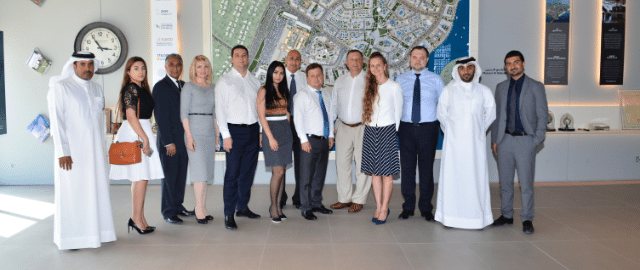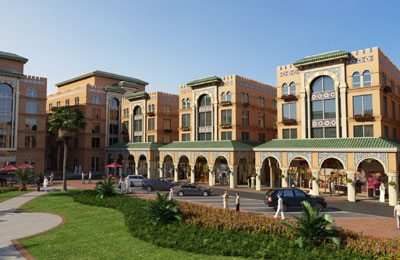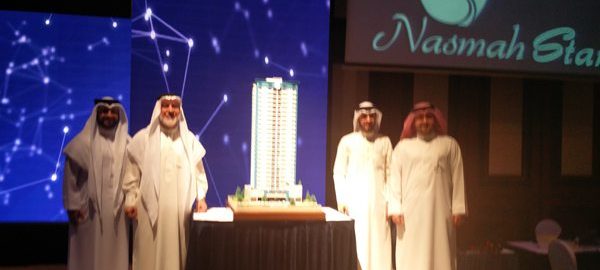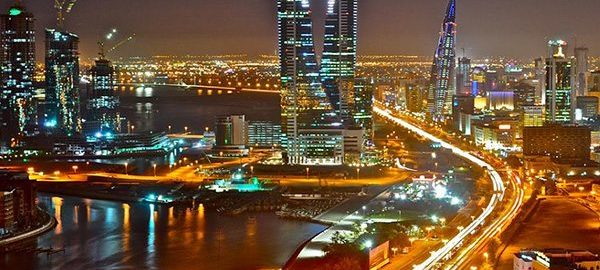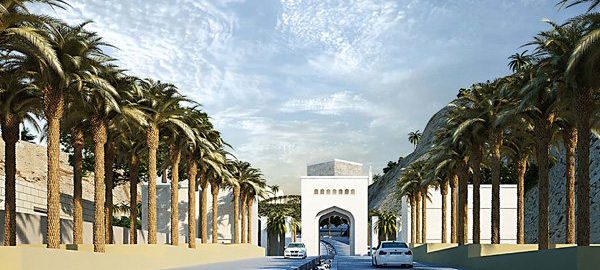Bahrain’s economic growth is expected to slow in 2016 as real growth in the oil sector receded amid a low oil price environment, a report said.
Growth in real GDP will slow from an estimated 1.6 per cent in 2015 to around 1.1 per cent year-on-year (y/y) in 2016, before recovering slightly in 2017, explained the latest Economic Update from the National Bank of Kuwait (NBK).
Non-oil GDP is expected to decelerate to around 1.4 per cent y/y in 2016 on weaker investor sentiment, before picking up to around 3.2 per cent y/y in 2017 on stronger growth in government spending and official GCC grants targeting housing and infrastructure developments, the report said.
Non-oil growth is expected to receive a healthy boost from investment in the coming years. The GCC has pledged $10 billion in investment over ten years. Indeed, the airport expansion project is being launched with a Dh3.4 billion ($925 million) grant from the UAE. In addition to this, Bahrain’s Economic Development Board (EDB) plans to invest over $20 billion in industrial and infrastructure projects over the coming years.
Nonetheless, the strength of non-oil GDP growth remains vulnerable to some internal concerns, which have dampened business optimism in recent years. While these concerns have mostly subsided, they continue to affect investor sentiment and limit gains in the financial services sector, construction and tourism sectors.
Consumer price inflation expected to edge up on subsidy cuts
Headline inflation accelerated towards the end of 2015 mainly on the back of stronger gains in food inflation, following the cuts in subsidies on meat products in September of 2015.
Despite this, average inflation slowed to 2.3 per cent y/y in 2015 compared to a 2.7 per cent average in 2014; this was primarily due to a moderation in housing inflation in the second half of 2015. “We expect inflation to edge slightly higher to average around 2.5 per cent in 2016 on further subsidy cuts,” said the NBK update.
Budget deficit to remain high on lower oil earnings and high spending
Bahrain is forecast to log in one of the largest budget deficits in the GCC region. “With the breakeven oil price estimated at around $120 per barrel and oil prices remaining low, we expect the budget deficit to widen and come above 17 per cent of GDP in 2016 before narrowing slightly to around 13 per cent of GDP in 2017,” said NBK.
Bahrain has vowed to embark on austerity measures in line with the IMF’s recommendations to help plug its public deficit. Thus far, it has approved a plan to reduce government spending by 30 per cent. Spending cuts have been concentrated on subsidies, while maintaining planned spending on infrastructure and development projects.
In August 2015, the government lifted subsidies on meat products. In December 2015, the cabinet approved a new pricing system for diesel, kerosene and jet fuel that will lower subsidy costs and better reflect price increases in other GCC states. In March 2016, it is scheduled to remove subsidies on utilities.
However, engaging in any further significant cuts in public spending will be a challenge, especially since the two politically sensitive areas of spending, subsidies and public wages make up two-thirds of total government spending. Any major cuts in these two areas could be problematic.
Given that the budget deficit is expected to remain high in spite of recent and potential subsidy cuts, Bahrain will continue to tap into international bond markets in 2016 to help finance its deficit. In 2015, Bahrain raised $1.5 billion in bonds. However, the recent downgrades of Bahrain’s long-term credit rating to BB by S&P and to Ba1 by Moody’s are likely to make issuance more challenging.
Banking sector liquidity set to tighten
Credit growth portrayed a mixed picture in the first half of 2015: whilst personal lending growth remained rather resilient in the face of lower oil prices, growth in business loans appears to have eased.
It is important to note that credit growth data has been distorted and more difficult to interpret ever since the Central Bank of Bahrain reclassified some of its financial institutions in May of 2014.
Business loan growth, relative to the growth in personal loans, was more affected by the central bank’s reclassification. Adjusting for the reclassification (dotted red line on chart 5), business loan growth slowed to 2.5 per cent y/y in June 2015, whilst personal loan growth edged up to 13.8 per cent y/y. However, personal lending growth is also forecast to ease in the near- to medium-term amid new liquidity conditions.
Deposit growth trended lower in 1H15, mainly due to a slowdown in government deposit growth.
After a short-lived recovery in May 2015, government deposit growth slipped back into negative territory in June, declining by 3.4 per cent y/y. Government deposits are being sapped by high levels of fiscal spending and lower oil revenues.
Growth in the broad M2 money supply measure has been gradually trending lower since the end of 2014, on the back of lower oil prices. Recently, this has helped push interbank rates higher. In June 2015, M2 money supply growth came in at 6.5 per cent y/y.
Bahrain’s one-month and three-month interbank rates witnessed steep increases at the end of 2015 and at the start of 2016. Both rates are due to continue to rise in 2016 on the back of slower deposit growth.
Bank asset growth remained lacklustre; total commercial bank asset growth slid deeper into negative territory after declining by 2.1 per cent y/y in June.
Total bank assets were shepherded lower mainly by losses in the wholesale sector. Growth in wholesale bank assets, which make up around 60 per cent of total assets (as of 2014), contracted by almost 4 per cent y/y in June.
Asset growth among the more domestically-focused retail banks has been on a downward trend since the beginning of this year. In June, it slowed from 2.9 per cent y/y in May to 0.5 per cent y/y.
Source: TradeArabia.com
